ডায়াবেটিস হলো একটি দীর্ঘমেয়াদী স্বাস্থ্যগত অবস্থা যেখানে শরীর সঠিকভাবে ইনসুলিন ব্যবহার বা তৈরি করতে পারে না। ইনসুলিন হলো একটি হরমোন যা আমাদের খাওয়া খাবার থেকে চিনি কোষে স্থানান্তরিত করে আমাদের শক্তি প্রদানে সাহায্য করে। যখন ইনসুলিন ভালোভাবে কাজ করে না বা অনুপস্থিত থাকে, তখন চিনি রক্তে থেকে যায়। এর ফলে রক্তে শর্করার মাত্রা বেড়ে যায় , যা চিকিৎসা না করালে গুরুতর সমস্যা দেখা দিতে পারে।
দুটি প্রধান প্রকার রয়েছেঃ
আরেক ধরনের ডায়াবেটিস হলো গর্ভকালীন ডায়াবেটিস , যা গর্ভাবস্থায় হয়। সাধারণভাবে, ডায়াবেটিসকে " চিনির রোগ " বা " রক্তে শর্করার সমস্যা " বলা হয়।
একটি প্রচলিত ধারণা হলো, অতিরিক্ত মিষ্টি খেলে ডায়াবেটিস হয়। সত্য হলো, ডায়াবেটিস অনেক কারণে হয়, যেমন পারিবারিক ইতিহাস, অতিরিক্ত ওজন , অথবা শরীরের রোগ প্রতিরোধ ক্ষমতার সমস্যা।
সঠিক যত্ন, ওষুধ এবং স্বাস্থ্যকর অভ্যাসের মাধ্যমে ডায়াবেটিস ভালোভাবে নিয়ন্ত্রণ করা সম্ভব। অনেকেই তাদের চিনির মাত্রা নিয়ন্ত্রণে রেখে দীর্ঘ এবং সক্রিয় জীবনযাপন করেন। যদি আপনার ডায়াবেটিস সম্পর্কিত লক্ষণ বা উদ্বেগ থাকে, তাহলে সঠিক রোগ নির্ণয় এবং নির্দেশনার জন্য অনুগ্রহ করে আপনার ডাক্তারের সাথে পরামর্শ করুন।
রক্তে শর্করার মাত্রা স্বাভাবিক রাখার জন্য ডায়াবেটিস নিয়ন্ত্রণ করা গুরুত্বপূর্ণ। চিকিৎসা ছাড়া ডায়াবেটিস হৃদরোগ, কিডনি ব্যর্থতা, দৃষ্টিশক্তি হ্রাস এবং স্নায়ুর ক্ষতির মতো গুরুতর সমস্যা সৃষ্টি করতে পারে। সময়মত চিকিৎসা রোগীদের সুস্থ জীবনযাপন করতে এবং জটিলতা এড়াতে সাহায্য করে।
টাইপ ১, টাইপ ২ এবং গর্ভকালীন ডায়াবেটিসের মধ্যে অন্তর্নিহিত কারণ গুলো ভিন্ন, তবে বেশ কয়েকটি সাধারণ ঝুঁকির কারণ এতে অবদান রাখেঃ
ডায়াবেটিসের লক্ষণগুলো ধীরে ধীরে দেখা দিতে পারে। অনেক মানুষ পরীক্ষা না করা পর্যন্ত বুঝতেই পারে না যে তাদের ডায়াবেটিস আছে।
ডাক্তাররা চিকিৎসা শুরু করার পরামর্শ দিতে পারেন যখনঃ
গুরুতর জটিলতা প্রতিরোধের জন্য ডায়াবেটিসের প্রাথমিক সনাক্তকরণ অত্যন্ত গুরুত্বপূর্ণ। যদি আপনার লক্ষণ বা ঝুঁকির কারণ থাকে, তাহলে আপনার ডাক্তার নিম্নলিখিত এক বা একাধিক পরীক্ষার পরামর্শ দিতে পারেনঃ
১. এলোমেলো রক্তে শর্করার পরীক্ষা
এই পরীক্ষাটি দিনের যেকোনো সময় আপনার রক্তে শর্করার মাত্রা পরীক্ষা করে, আপনি শেষবার কখন খেয়েছেন তা নির্বিশেষে। ২০০ মিলিগ্রাম/ডেসিলিটার বা তার বেশি ফলাফল, ঘন ঘন প্রস্রাব বা ক্লান্তির মতো লক্ষণ গুলোর সাথে, ডায়াবেটিস নির্দেশ করতে পারে এবং অন্যান্য পরীক্ষার মাধ্যমে নিশ্চিত হওয়া উচিত।
২. খালি পেটে রক্তে শর্করার পরীক্ষা
কমপক্ষে ৮ ঘন্টা না খাওয়ার পর রক্তে শর্করার মাত্রা পরিমাপ করে। ১২৬ মিলিগ্রাম/ডেসিলিটার বা তার বেশি হলে ডায়াবেটিসের ইঙ্গিত পাওয়া যায়।
৩. HbA1c পরীক্ষা (গ্লাইকেটেড হিমোগ্লোবিন)
এই পরীক্ষাটি গত ২-৩ মাসের মধ্যে আপনার গড় রক্তে শর্করার পরিমাণ দেখায়। HbA1c স্তর ৬.৫% বা তার বেশি হলে তাকে ডায়াবেটিস বলে মনে করা হয়।
৪. ওরাল গ্লুকোজ টলারেন্স টেস্ট (OGTT)
উপবাসের পর, আপনার রক্তে শর্করার মাত্রা পরীক্ষা করা হয়, তারপর আবার গ্লুকোজ দ্রবণ পান করার দুই ঘন্টা পরে। দুই ঘন্টা পরে ২০০ মিলিগ্রাম/ডেসিলিটার বা তার বেশি রিডিং ডায়াবেটিস নিশ্চিত করে।
৫. খাবার পর রক্তে শর্করার পরীক্ষা
খাওয়ার ঠিক দুই ঘন্টা পরে শর্করার মাত্রা পরিমাপ করা হয়। উচ্চ ফলাফল রক্তে শর্করার নিয়ন্ত্রণের অভাব নির্দেশ করতে পারে।
এই পরীক্ষাগুলো আপনার ডায়াবেটিস আছে কিনা তা নিশ্চিত করতে, আপনার অগ্রগতি ট্র্যাক করতে এবং চিকিৎসার নির্দেশনা দিতে সাহায্য করে। উপরের তথ্যগুলি সাধারণ সচেতনতার জন্য। সঠিক রোগ নির্ণয় এবং পরীক্ষার ফলাফলের ব্যাখ্যার জন্য সর্বদা আপনার ডাক্তারের সাথে পরামর্শ করুন।
যদি ডায়াবেটিস সঠিকভাবে পরিচালনা না করা হয়, তাহলে সময়ের সাথে সাথে এটি গুরুতর জটিলতা সৃষ্টি করতে পারে। এগুলো একাধিক অঙ্গ এবং শরীরের সিস্টেমকে প্রভাবিত করতে পারেঃ
দ্রুত রোগ নির্ণয়, নিয়মিত পর্যবেক্ষণ এবং সঠিক চিকিৎসার মাধ্যমে এই জটিলতা গুলো প্রায়ই প্রতিরোধ করা যেতে পারে বা বিলম্বিত করা যেতে পারে। এখানে তালিকাভুক্ত জটিলতাগুলি সাধারণ। ঝুঁকি এবং তীব্রতা ব্যক্তিভেদে ভিন্ন। সম্পূর্ণ মূল্যায়ন এবং প্রতিরোধ পরিকল্পনার জন্য অনুগ্রহ করে আপনার স্বাস্থ্যসেবা প্রদানকারীর সাথে পরামর্শ করুন।
টাইপ ২ ডায়াবেটিস রোগীর জন্য রক্তে শর্করার মাত্রা নিয়ন্ত্রণে রাখার এবং প্রতিদিন সুস্থ থাকার জন্য এখানে একটি নমুনা খাদ্য তালিকা দেওয়া হলো।
এই ডায়েট চার্টটি একটি নমুনা নির্দেশিকা। আপনার খাবার পরিকল্পনায় পরিবর্তন আনার আগে সর্বদা একজন সার্টিফাইড ডায়েটিশিয়ান বা আপনার ডাক্তারের সাথে পরামর্শ করুন।
ডায়াবেটিস (চিনি) দ্রুত কমাতে কি খাবেন তা বোঝা স্পাইক নিয়ন্ত্রণের জন্য অত্যন্ত গুরুত্বপূর্ণ। কম গ্লাইসেমিক সূচক এবং ফাইবার সমৃদ্ধ খাবারের উপর মনোযোগ দিন। শাকসবজি, করলা (করেলা), মেথি বীজ, গোটা শস্য, মসুর ডাল এবং বাদাম গ্লুকোজ নিয়ন্ত্রণে সহায়তা করতে পারে। খাবারে চর্বিহীন প্রোটিন এবং স্বাস্থ্যকর চর্বি অন্তর্ভুক্ত করাও চিনি শোষণকে ধীর করতে সহায়তা করে।
একই সাথে, জেনে নিন কোন খাবারগুলো ডায়াবেটিস (রক্তে শর্করার) মাত্রা বাড়ায়, যেমন সাদা ভাত, সাদা রুটি, চিনিযুক্ত খাবার, প্রক্রিয়াজাত খাবার এবং মিষ্টিযুক্ত পানীয় , এবং এগুলো এড়িয়ে চলুন, কারণ এগুলো দ্রুত গ্লুকোজ বৃদ্ধির কারণ হতে পারে। একটি সুষম, অংশ-নিয়ন্ত্রিত খাদ্য এবং নিয়মিত শারীরিক কার্যকলাপ ডায়াবেটিস কার্যকরভাবে পরিচালনার মূল চাবিকাঠি।
রক্তে শর্করার মাত্রা স্থিতিশীল রাখার জন্য, ডায়াবেটিস রোগীদের নিয়মিত বিরতিতে খাবার খাওয়া উচিত এবং সারা দিন প্রচুর পরিমাণে জল পান করা উচিত। ডায়াবেটিস রোগীদের জন্য নিষিদ্ধ খাবার , যেমন চিনিযুক্ত পানীয়, ভাজা খাবার এবং পরিশোধিত কার্বোহাইড্রেট এড়িয়ে চলা গুরুত্বপূর্ণ। জটিলতার ঝুঁকি কমাতে লবণ এবং স্যাচুরেটেড ফ্যাট সীমিত করুন। গ্লাইসেমিক নিয়ন্ত্রণের জন্য পরিশোধিত ময়দার পরিবর্তে বাদামী চালের মতো গোটা শস্য বেছে নিন।
এছাড়াও, ডায়াবেটিসে কোন সবজি খাওয়া উচিত নয় সে সম্পর্কে সচেতন থাকুন , যেমন আলু, সুইটকর্ন এবং ইয়াম, কারণ এগুলোতে স্টার্চ বেশি থাকে এবং রক্তে শর্করার মাত্রা বাড়িয়ে দিতে পারে। ব্যক্তিগতকৃত খাদ্য পরিকল্পনার জন্য, একজন সার্টিফাইড ডায়েটিশিয়ানদের সাথে পরামর্শ করা ভাল।
১. হাঁটাঃ সহজ এবং কম প্রভাব। প্রতিদিন ৩০ মিনিট দ্রুত হাঁটা রক্তে শর্করা নিয়ন্ত্রণে সাহায্য করে।
২. সাইকেল চালানোঃ হৃদপিণ্ডের স্বাস্থ্য এবং রক্ত সঞ্চালন উন্নত করে। গ্লুকোজের মাত্রা কমায় এবং পায়ের পেশী শক্তিশালী করে।
৩. সাঁতারঃ জয়েন্টগুলোতে হালকা ব্যায়াম এবং পুরো শরীরের ব্যায়াম। ইনসুলিন সংবেদনশীলতা এবং হৃদরোগের স্বাস্থ্য উন্নত করে।
৪. যোগব্যায়ামঃ মানসিক চাপ কমায় এবং হরমোনের ভারসাম্য বজায় রাখে। নমনীয়তা, হজমশক্তি এবং রক্তে শর্করার নিয়ন্ত্রণ উন্নত করে।
৫. শক্তি প্রশিক্ষণঃ হালকা ওজন তোলা বা প্রতিরোধ ব্যান্ড ব্যবহার করা। পেশী তৈরি করে, যা শরীরকে আরও দক্ষতার সাথে ইনসুলিন ব্যবহার করতে সাহায্য করে।
৬. অ্যারোবিক ব্যায়ামঃ নাচ, জগিং, অথবা গ্রুপ ফিটনেস ক্লাস অন্তর্ভুক্ত করুন। ক্যালোরি পোড়াতে এবং শরীরের ওজন নিয়ন্ত্রণে রাখতে সাহায্য করে।
৭. চেয়ারের ব্যায়াম (বয়স্কদের জন্য অথবা যাদের চলাচলের ক্ষমতা কম তাদের জন্য)ঃ বসে পা উত্তোলন, হাতের বৃত্তাকারে ঘোরানো, অথবা হালকা প্রতিরোধী নড়াচড়া। রক্ত সঞ্চালন উন্নত করে এবং শরীরকে নিরাপদে সচল রাখে।
৮. স্ট্রেচিংঃ শক্ত হওয়া রোধ করে এবং নমনীয়তা উন্নত করে। ওয়ার্কআউটের আগে এবং পরে আদর্শ।
ব্যায়াম করার আগে, কিছু টিপস মনে রাখবেন। ব্যায়ামের আগে এবং পরে সর্বদা আপনার রক্তে শর্করার পরিমাণ পরীক্ষা করুন। হাইড্রেটেড থাকুন। পায়ের আঘাত এড়াতে সঠিক জুতা পরুন। চিনির মাত্রা কম থাকলে হাতের কাছে একটি ছোট খাবার রাখুন। ধীরে ধীরে শুরু করুন এবং ধীরে ধীরে তীব্রতা বাড়ান।
Disclaimer: আপনার স্বাস্থ্যের অবস্থা অনুযায়ী ব্যায়ামের রুটিন তৈরি করা উচিত। কোনও নতুন শারীরিক কার্যকলাপ বা ব্যায়াম পরিকল্পনা শুরু করার আগে আপনার ডাক্তারের সাথে পরামর্শ করুন।
ডায়াবেটিসের প্রাথমিক চিকিৎসা দীর্ঘমেয়াদী ফলাফল এবং কম জটিলতার দিকে পরিচালিত করে। যদি আপনার বা আপনার প্রিয়জনের কোনও লক্ষণ দেখা দেয় বা সহায়তার প্রয়োজন হয়, তাহলে বাংলা হেলথ্ কানেক্ট আপনাকে বিশ্বব্যাপী শীর্ষ ডায়াবেটিস বিশেষজ্ঞদের সাথে যোগাযোগ করতে সাহায্য করে।
.png)
বাংলা হেলথ্ কানেক্টের মাধ্যমে বাংলাদেশের রোগীরা ভারত, থাইল্যান্ডসহ বিশ্বের বিভিন্ন দেশের শীর্ষস্থানীয় হাসপাতালে চিকিৎসা নিতে পারেন, যেগুলো ডায়াবেটিস ব্যবস্থাপনায় তাদের উৎকর্ষতার জন্য পরিচিত। অনেক পরিবার বিদেশে যায় কারণ সেখানে বিশেষজ্ঞ চিকিৎসক, উন্নত প্রযুক্তি এবং নির্ভরযোগ্য সাপোর্ট সহজলভ্য।
বাংলাদেশি রোগীরা কেন বাংলা হেলথ্ কানেক্টের বিশ্বব্যাপী হাসপাতাল নেটওয়ার্কের মাধ্যমে ডায়াবেটিস চিকিৎসা বেছে নেন তা এখানে:
বাংলা হেলথ্ কানেক্ট বাংলাদেশের রোগীদের জন্য আন্তর্জাতিকভাবে স্বীকৃত বিশেষজ্ঞ, সাশ্রয়ী চিকিৎসা ও বিশ্বস্ত সাপোর্টের একটি নির্ভরযোগ্য পথ তৈরি করে।
বাংলা হেলথ্ কানেক্ট রোগীদের বিশ্বের শীর্ষস্থানীয় হাসপাতালগুলোর সাথে যুক্ত করে। এসব হাসপাতাল ডায়াবেটিস ব্যবস্থাপনায় অভিজ্ঞতা, উন্নত ডায়াগনস্টিক প্রযুক্তি এবং আন্তর্জাতিক রোগীদের জন্য শক্তিশালী সাপোর্ট সিস্টেমের জন্য পরিচিত।
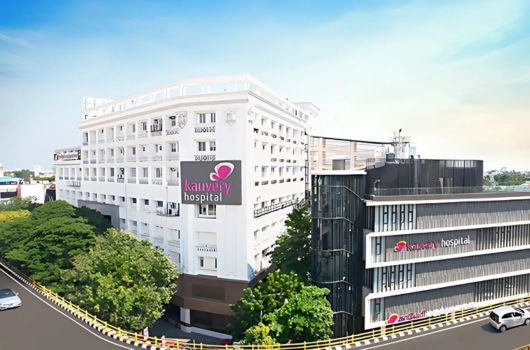

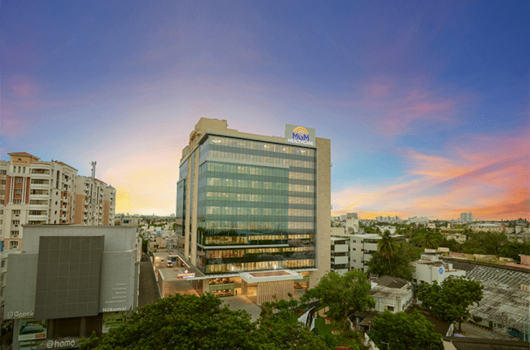



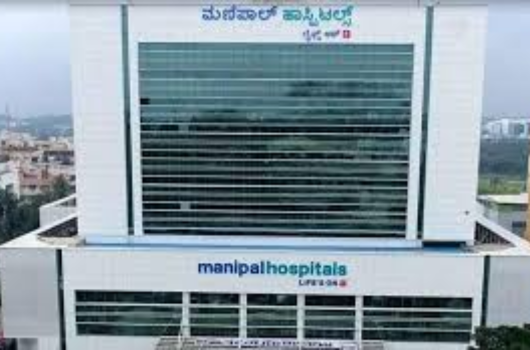
.png)
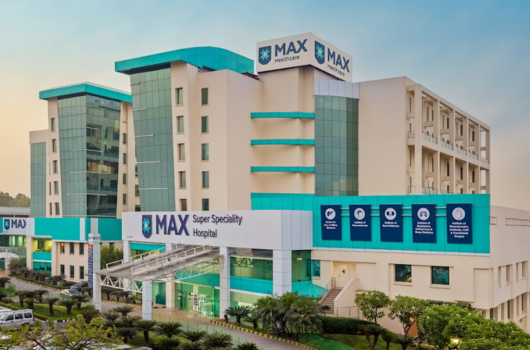
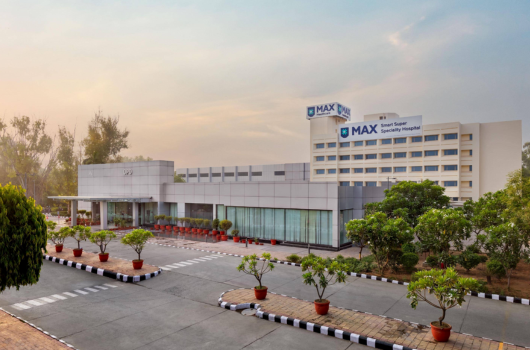
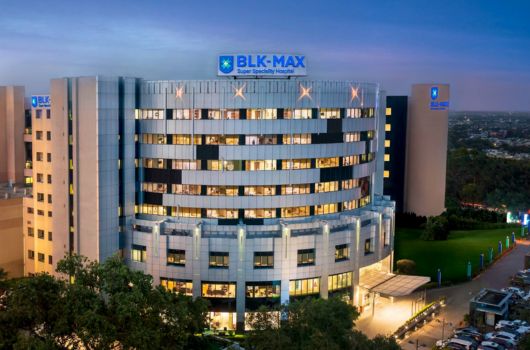
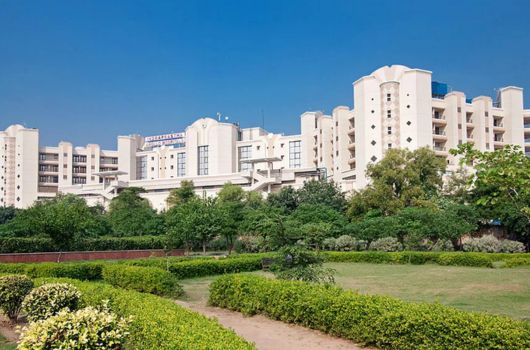


.jpg)
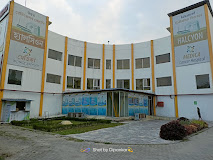
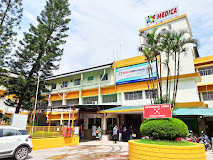
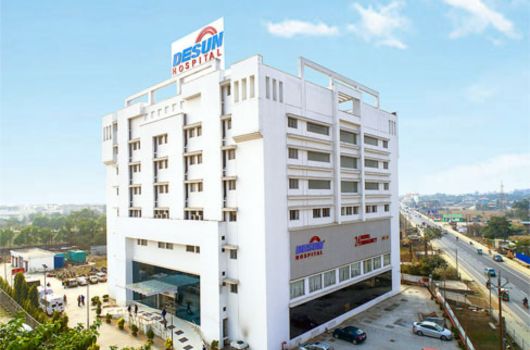

.jpg)


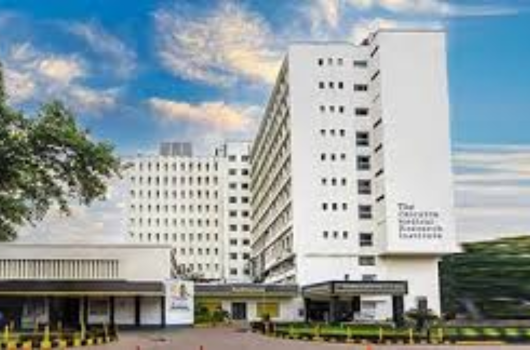
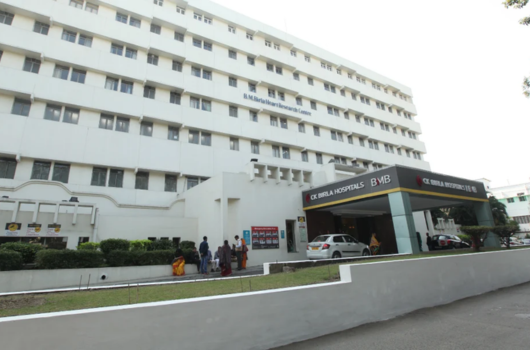



এই হাসপাতালগুলো আন্তর্জাতিক ডায়াবেটিস চিকিৎসা নির্দেশিকা অনুসরণ করে এবং বাংলা হেলথ কানেক্টের মাধ্যমে বাংলাদেশি রোগীদের সম্পূর্ণ সহায়তা প্রদান করে।
ডায়াবেটিস চিকিৎসার গড় খরচ ভারতে $120 থেকে $2,400 এবং থাইল্যান্ডে $55 থেকে $5,000 এর মধ্যে। চূড়ান্ত খরচ চিকিৎসা পদ্ধতি, হাসপাতালের অবস্থান এবং জটিলতার উপস্থিতির মতো একাধিক কারণের উপর নির্ভর করে পরিবর্তিত হতে পারে। চিকিৎসার খরচের বিস্তারিত সারণী দেখার আগে, এই খরচগুলিকে সবচেয়ে বেশি প্রভাবিত করে তা বোঝা সহায়ক।
ডায়াবেটিস পরিচালনার মোট খরচের উপর বেশ কয়েকটি কারণ প্রভাব ফেলতে পারেঃ
নোট: উন্নত ডায়াবেটিস চিকিৎসার জন্য ভারত একটি সাশ্রয়ী মূল্যের গন্তব্য হিসেবে ব্যাপকভাবে স্বীকৃত। হাসপাতালগুলি সাশ্রয়ী মূল্য এবং কার্যকর ফলাফলের ভারসাম্য প্রদান করে, অভিজ্ঞ বিশেষজ্ঞদের দ্বারা সমর্থিত এবং কম খরচে প্রয়োজনীয় ওষুধের প্রাপ্যতা।
নোট: থাইল্যান্ডের হাসপাতালগুলো নিজেদেরকে প্রায়ই আন্তর্জাতিক রোগীদের জন্য প্রিমিয়াম সেন্টার হিসেবে উপস্থাপন করে। বেশি খরচের কারণ হলো উন্নত আমদানিকৃত ওষুধ, বিলাসবহুল অবকাঠামো, এবং রোগীর জন্য সম্পূর্ণ সেবা-সমৃদ্ধ প্যাকেজ।
উল্লেখিত খরচগুলো আনুমানিক এবং হাসপাতাল, অবস্থান ও রোগীর প্রয়োজন অনুযায়ী পরিবর্তন হতে পারে। সঠিক ও হালনাগাদ তথ্যের জন্য সংশ্লিষ্ট স্বাস্থ্যসেবা প্রদানকারীর সাথে পরামর্শ করা উচিত।
উপরের টেবিলে ব্যবহৃত মুদ্রা রূপান্তর হার অক্টোবর ২০২৫ সালের ভিত্তিতে নির্ধারিত।
খরচের অনুমান ও ব্যক্তিগত সহায়তার জন্য Bangla Health Connect-এর সাথে যোগাযোগ করুন।
টাইপ ২ ডায়াবেটিস চিকিৎসার সাফল্য পরিমাপ করা হয় দীর্ঘমেয়াদী স্বাস্থ্য ফলাফলের প্রমাণ-সমর্থিত উন্নতির মাধ্যমে। দুটি মূল সূচক হলোঃ
এই ফলাফল গুলো তুলে ধরে যে কিভাবে সুগঠিত ডায়াবেটিস যত্ন রোগীদের দীর্ঘ এবং স্বাস্থ্যকর জীবনযাপনের দিকে পরিচালিত করতে পারে।
ডায়াবেটিস ব্যবস্থাপনায়, "সাফল্য" মানে রক্তে শর্করার মাত্রা যতটা সম্ভব স্বাভাবিকের কাছাকাছি রাখা। এর অর্থ বেশিরভাগ রোগীর জন্য সম্পূর্ণ আরোগ্য নয়, তবে এর অর্থ হতে পারেঃ
ডায়াবেটিস চিকিৎসার সাফল্য নির্ভর করে প্রাথমিক রোগ নির্ণয়, নিয়মিত পর্যবেক্ষণ, খাদ্যাভ্যাস ও ব্যায়াম পরিকল্পনা অনুসরণ এবং নির্ধারিত ওষুধ সঠিকভাবে গ্রহণের উপর।
প্রধান হাসপাতালগুলো ডায়াবেটিস রোগীদের জন্য সঠিক নির্ণয়, দীর্ঘমেয়াদি পর্যবেক্ষণ এবং পূর্ণাঙ্গ সেবার উপর গুরুত্ব দেয়। তাদের চিকিৎসা-পদ্ধতিতে অন্তর্ভুক্ত থাকে:
উন্নত প্রযুক্তি, বিশেষজ্ঞ চিকিৎসা এবং রোগী-কেন্দ্রিক সেবার সমন্বয়ে লক্ষ লক্ষ রোগী উন্নত রক্তে সুগার নিয়ন্ত্রণ এবং ভালো মানের জীবনযাপন করতে সক্ষম হয়েছেন।
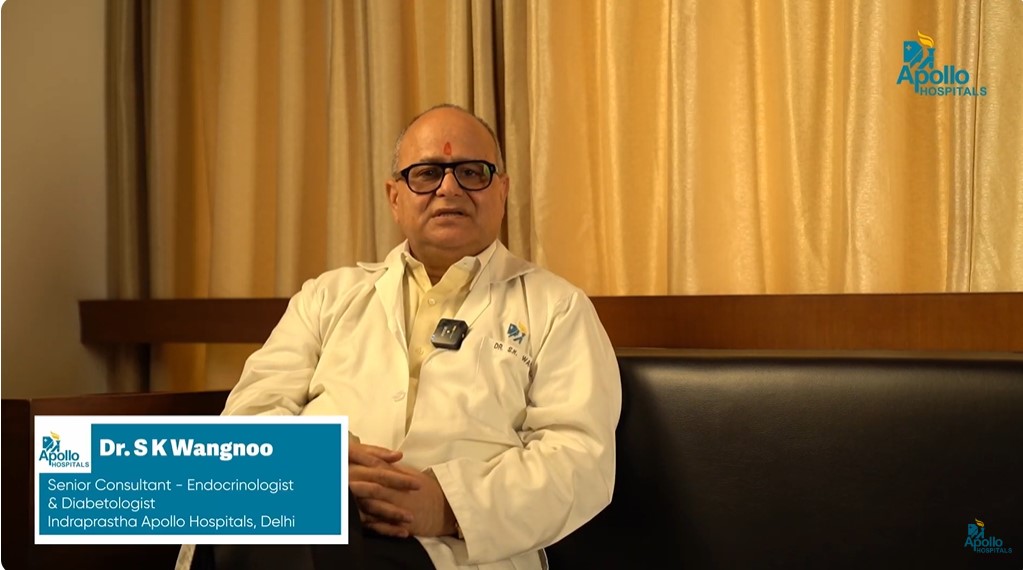
একজন শীর্ষস্থানীয় এন্ডোক্রিনোলজিস্ট এবং ডায়াবেটিস বিশেষজ্ঞ ডা. এস কে ওয়াংনু বলেন যেঃ
" ডায়াবেটিস একটি নীরব ঘাতক ; এটি নিয়ন্ত্রণ না করলে হঠাৎ হৃদরোগের মৃত্যু, অঙ্গচ্ছেদ এবং গুরুতর জটিলতা সৃষ্টি করতে পারে। শুধুমাত্র চিনিযুক্ত খাবার খেলে ডায়াবেটিস হয় না, তবে স্থূলতা ঝুঁকি বাড়ায়। ডায়াবেটিস নিরাময় করা যায় না, তবে এটি নিয়ন্ত্রণ করা যায়, এবং চিনি, রক্তচাপ, কোলেস্টেরল, খাদ্যাভ্যাস এবং ব্যায়ামের কঠোর ব্যবস্থাপনার মাধ্যমে জটিলতা প্রতিরোধ করা যায়। লক্ষণ গুলো সম্পর্কে সতর্ক থাকুন, আগে থেকেই একজন ডায়াবেটিস বিশেষজ্ঞের সাথে পরামর্শ করুন এবং সুস্থ, নিরাপদ এবং অবগত থাকুন।"
বাংলা হেলথ কানেক্ট বিশ্বব্যাপী বাংলাদেশী রোগীদের নিরাপদ এবং উন্নত ডায়াবেটিস চিকিৎসা পেতে সাহায্য করে। আমাদের দল নেতৃস্থানীয় হাসপাতালগুলির সাথে কাজ করে ডাক্তারের পরামর্শ থেকে শুরু করে ভ্রমণ এবং খরচ পরিকল্পনা পর্যন্ত প্রতিটি পদক্ষেপ সহজ এবং চাপমুক্ত করে।
Bangla Health Connect-এর মাধ্যমে হাসপাতাল নির্বাচন করলে আপনি বিশ্বমানের ডায়াবেটিস চিকিৎসা, সম্পূর্ণ গাইডেন্স এবং ঝামেলামুক্ত সাপোর্ট পান। আত্মবিশ্বাসের সাথে আপনার চিকিৎসার যাত্রা শুরু করুন—আমরা আপনার পাশে আছি।
নোট: Bangla Health Connect কোনও চিকিৎসা পরামর্শ প্রদান করে না। আমরা রোগীদের সঠিক বিশেষজ্ঞ ও সাপোর্ট সার্ভিসের সঙ্গে সংযুক্ত হতে সহায়তা করি।
✅ আপনার রিপোর্ট শেয়ার করুন
✅ নেতৃস্থানীয় হাসপাতাল থেকে চিকিৎসা পরিকল্পনা পান
✅ আপনার জন্য উপযুক্ত একটি বেছে নিন
✅ বাকি কাজ আমাদের ওপর ছেড়ে দিন
হ্যাঁ, আপনার একটি মেডিকেল ভিসা প্রয়োজন। বাংলা হেলথ্ কানেক্ট ডাক্তারের চিঠি এবং সমস্ত ভিসার নথিপত্রের জন্য সাহায্য করে।
হ্যাঁ। পরিবারের এক বা দুইজন সদস্য আসতে পারবেন। তাদের মেডিকেল অ্যাটেনডেন্ট ভিসার জন্য আবেদন করা উচিত।
বেশিরভাগ ডায়াবেটিস পরামর্শ এবং পরীক্ষার জন্য ৫ থেকে ৭ দিন সময় লাগে। তবে যদি জটিলতা থাকে বা উন্নত চিকিৎসার প্রয়োজন হয়, তাহলে আরও কিছুদিন সেখানে থাকতে হতে পারে।
হ্যাঁ। ডাক্তারের অ্যাপয়েন্টমেন্ট থেকে শুরু করে ভিসা, ভ্রমণ এবং হাসপাতালে ভর্তি পর্যন্ত, বাংলা হেলথ্ কানেক্ট পূর্ণ সহায়তা প্রদান করে।
আপনার ডাক্তার আপনাকে গাইড করবেন। অনেক রোগী মাসে একবার বা দুবার ফাস্টিং ব্লাড সুগার এবং র্যান্ডম ব্লাড সুগার পরীক্ষা করেন।
টাইপ ১ ডায়াবেটিস নিরাময় করা যায় না, তবে এটি নিয়ন্ত্রণ করা সম্ভব। টাইপ ২ ডায়াবেটিস প্রায়ই খাদ্য, ব্যায়াম এবং ওষুধের মাধ্যমে ভালোভাবে নিয়ন্ত্রণ করা যায়। ব্যক্তিগত নির্দেশিকা এবং চিকিৎসার জন্য আপনি একজন যোগ্যতাসম্পন্ন স্বাস্থ্যসেবা প্রদানকারীর সাথে পরামর্শ করতে পারেন।

